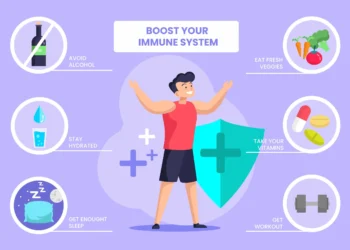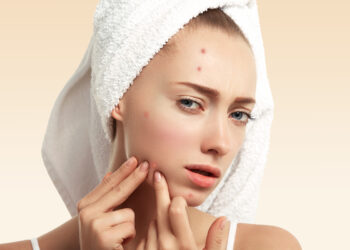Sleep is one of the most essential building blocks of health, and yet it’s largely neglected in our modern-day fast-paced society. Most people place a higher value on work, friends or entertainment than good sleep, but sleep deprivation can have far-reaching effects. Proper sleep does not just make us feel refreshed and awake but also benefits our physical health, mental health and quality of life. In this article, we’ll talk about the importance of sleep, the science behind how it impacts our body, and how to improve sleep hygiene.
Table of Contents
The Science of Sleep: Understanding Its Importance
Sleep is a complex biology in which the body and brain recharge, regenerate and prepare for the next day. It comes in phases, including rapid eye movement (REM) sleep and non-REM sleep, each of which performs a different function. In non-REM sleep, the body is rehabilitating itself physically – replacing tissues, making bones and muscles, and building up the immune system. In contrast, REM sleep is essential for memory consolidation, emotional regulation and creativity.
There are two main systems regulating sleep: circadian rhythm and sleep-wake homeostasis. Our circadian rhythm – the body’s internal time – corresponds to the 24-hour day/night cycle, and determines when we fall asleep or awake. Sleep-wake homeostasis ensures that the longer we remain awake, the greater the urge to go to sleep. The failure of these systems, whether caused by bad habits or by environmental influences, can disrupt sleep and eventually affect health.
The Physical Health Benefits of Sleep
Sleep is essential to physical wellness. Sleep is an essential time for the body to grow, heal and function. One of sleep’s biggest gains is its effect on the immune system. When we’re asleep, we secrete cytokines – proteins that resist infections, inflammation and stress. Deprivation of sleep is a lifelong problem that weakens immunity and push the person to colds, flu and other severe diseases.
Heart health also depends on sleep. We know that insufficient sleep puts you at risk for high blood pressure, heart disease and stroke. Deep sleep reduces blood pressure so that the heart and blood vessels can relax and recuperate. Sleep deprivation interrupts this flow, causing long-term high blood pressure and cardiovascular stress.
Another area in which sleep can help is the metabolic system. The lack of sleep affects hunger and appetite hormones, like ghrelin and leptin. If we are sleep-deprived, we produce more ghrelin, which makes us hungry, and less leptin, which makes us feel full. This unbalanced state makes you eat excessively and gain weight, making you vulnerable to obesity and other complications including type 2 diabetes.
The Psychological Effects of Sleep
Sleep is as important to our minds as it is to our bodies. It is during sleep, especially REM sleep, that our brains integrate feelings and experiences in ways that help us to deal with stress and to stay emotionally intact. Long-term sleep deprivation has been associated with mood disorders, including depression and anxiety. It also worsens already pre-existing mental illnesses, making them more difficult to cope with.
Mental processes, such as attention, problem-solving and decision-making, are largely shaped by sleep. Sleep is the time for the brain to consolidate day-to-day memory and absorb day-to-day learning. Lack of sleep can negatively affect one’s ability to remember, focus and work. In the long run, sleep-related cognitive losses can have a significant impact on academic, professional and private performance.
Sleep deprivation can also lead to accidents and injuries. Tiredness deprives you of quick thinking and judgement and makes drowsy driving as risky as drunk driving. According to the National Highway Traffic Safety Administration, sleepy driving accounts for thousands of crashes, injuries and deaths a year.
The Long-Term Impact of Sleep Deprivation.
Sleepless nights won’t hurt you for a long time, but sleep loss in the long term can be damaging. It has been shown that poor sleep contributes to chronic diseases like obesity, diabetes, heart disease, and some cancers. Poor sleep also makes you age faster, leading to premature wrinkles, fine lines and sallow skin.
The brain is especially susceptible to prolonged sleep deprivation. According to some studies, poor sleep can also lead to neurodegenerative disorders like Alzheimer’s. When we sleep, the brain excretes poisonous toxins, such as beta-amyloid, which is linked to Alzheimer’s disease. In the absence of sleep, this purging is disrupted and may lead to cognitive decline.
How Much Sleep Do You Really Need:
The amount of sleep needed varies by age and iSleeping requirements vary depending on age and individual circumstances, but guidelines recommend the following:
- Newborns: Age: 0-3 months old need 14-17 hours of sleep
- Infants: Age: 4- 11 months old need 12-15 hours of sleep
- Toddlers: Age: 1-2 years old need 11-14 hours of sleep
- Preschoolers: Age: 3-5 years need 10-13 hours of sleep
- School-age children: Age: 6-13 years old need 9-11 hours of sleep
- Teenagers: Age: 14-17 years old need 8-10 hours of sleep
- Adults: Age: 18-64 years old need 7-9 hours of sleep
- Older adults: Age: 65+ years old need 7-8 hours of sleep
It is essential to mention that quality matters as much as quantity. Weak or anxious sleep is just as harmful as insufficient hours.
Strategies for Better Sleep Hygiene
Better sleep hygiene, sleep-enhancing habits and routines — are key to achieving restful sleep. Some hints for better sleep:
- Maintain a Regular Sleep Pattern: Sleep at the same time each day even on weekends, and wake up at the same time. Regularity maintains body rhythms and promotes good sleep.
- Build an Optimal Bedtime Schedule: Try to do some meditative or relaxation exercises before going to bed, including reading, meditation, or a warm bath. Don’t engage in engaging activities such as watching television or working with electronic equipment.
- Cut Blue Light: Blue light reflected by smartphones, tablets, and computers can disrupt the production of melatonin, the hormone that regulates sleep. Blue light filters or no screens at least an hour before bed.
- Prep Your Bedroom for Sleep: Make your bedroom cool, dark, and quiet so that you can fall asleep. Consider purchasing a comfortable mattress and pillows, blackout curtains or white noise machines if you need them.
- Be Healthy & Active: Don’t eat big meals or drink too much caffeine and alcohol before bedtime. Exercise is conducive to sleep, but make sure to finish exercises a few hours before bed.
- Stress and Anxiety Management: Reduce stress through mindfulness, yoga, or deep breathing. Chronic stress interrupts sleep, so relaxation is essential.
- Ask for Professional Help: If you’re still experiencing sleep issues even with lifestyle modifications, speak to a doctor or sleep professional. You may need to seek treatment for insomnia, sleep apnea and restless legs syndrome.
Final Words
Sleep is a cornerstone of health and well-being that touches virtually every facet of our lives. From physical to mental, its advantages are undeniable. But it can be difficult to focus on sleep in a busy world that glorifies activity and devalues sleep. Adopting sleep based on proper understanding is critical to a long, healthy, and satisfying life. In addition, if sleep becomes a priority, then we can unleash our potential and reap the many rewards that only really restorative sleep can offer.














